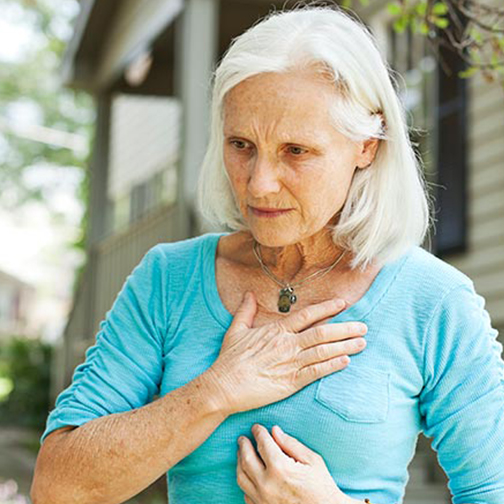
This month we kick off our Coping Webinar Series, a program to help you manage the side effects and symptoms of lung cancer and its treatment. Our first webinar focused on shortness of breath, an incredibly common issue for those living with lung cancer.
We sat down with nurse practitioner, Dr. Lynn Reinke, PhD, ARNP, FAAN and certified nurse specialist, Donna Wilson, RN, MSN, RRT to determine the best approaches for managing shortness of breath.
- Medications: Inhalers deliver medication into the body via your lungs, helping keep airways open. Depending on the reason for your shortness of breath, medications like opioids or anti-anxiety medications may help. Talk with your doctor about what medications make sense for you.
- Pursed-Lip Breathing: A breathing technique that increases oxygen to the blood stream.
- Here’s how to do it: Inhale through your nose and then slowly exhale through your mouth. This can be done at rest or when moving.
- Diaphragmatic Breathing: This exercise helps strengthen the diaphragm, a large muscle in the stomach that plays a big role in breathing.
- Here’s how to do it: Put one hand on your chest and the other on your stomach. Breathe in and feel your belly expand. Breathe out slowly.
- Positioning: When feeling short of breath, it can help to change your body position. Slightly lean forward to let lungs expand, creating more room in your diaphragm to inhale and exhale.
- Hand-Held Fan: Hold a small hand-held fan directly to your nose or face for five minutes. This stimulates facial nerves, thus changing your perception of breathlessness.
- Relaxation Techniques: Try a relaxation technique to help lower anxiety. Here are a few to consider:
- Yoga
- Tai chi
- Guided visualization
- Meditation
- Energy Conservation: Plan ahead in order to conserve your energy throughout the day. Consider sitting down while doing tasks. Prioritize your activities and remember it’s OK to not accomplish everything on our “to do” list.
- Pulmonary Rehab: Offered at most medical centers, you will work with a multi-disciplinary team to devise an individual exercise program that works best for you.
- Environmental Factors: Avoid going outside on extremely hot or cold days. Be mindful of the air quality and avoid going outdoors when pollution levels are high.
Remember! It is important to talk with your doctor about what technique(s) is best for you.
Resources:
- View the full webinar video.
- Download a one pager with detailed descriptions of breathing exercises.
- View videos demonstrating helpful breathing exercises led by Donna Wilson!
For any questions about lung cancer or shortness of breath, call our HelpLine at 1-800-298-2436.

Leave A Comment